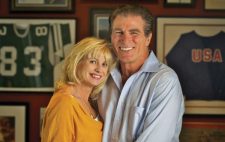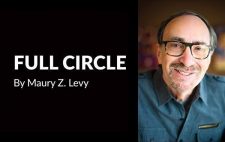Better known as the “Geator with the Heater” or the “Boss with the Hot Sauce,” legendary disc jockey Jerry Blavat has kept the oldies alive and well. At 71, the Geator’s Legends of Doo Wop show continues to sell out the Kimmel Center, and he can still be found spinning records at Memories in Margate. The Geator’s recent tome, “You Only Rock Once: My Life In Music,” chronicles his journey from a Philly Bandstand dancer and SJ disc jockey to a music icon.
You’ve been part of the Philly music scene for half a century, and you’re known as a trailblazer. How did you get started?
I never intended to be a disc jockey. I came from a broken family. My father was a Jewish bookmaker and my mother ran away to marry him. In those days – 1937, ’38 – you didn’t marry out of your faith. I lived a different life than most kids at that time because my father was never around and my mother had to go to work as a riveter in the navy yard during the Second World War. In order for her to go to work, we had to be in bed at six, especially in the summer time. When the other kids were playing, I was in bed with the window open saying, “Yo Momma, how come we gotta be in bed?” She said, “You’re not like the other kids. I have to work tomorrow morning.” It was basically about loneliness for me, but what I found was radio.
You were an original “American Bandstand” dancer when you were only 13. What did that show mean to you and to viewers?
Bandstand meant an opportunity for me to go out and do what I loved to do. I became the head of the “committee” – the regular dancers – because I won all the dance contests. Bob Horn, the host [before Dick Clark], said I won three dance contests and the viewers were going to think it was fixed. I couldn’t get into the contest anymore, but since I was the best dancer, he wanted me to become head of the committee and rotate the kids on the dance floor. That’s how I met all these wonderful artists. I had to be sure all the guests were ready to be on the spot when the camera hit. Bandstand was the forum for me to express myself in show business, which I loved since the age of 13. Locally, Bandstand was the hottest dance show ever. When the show went national, it lost its local pizzazz.
 You won your first radio job in a craps game. What happened?
You won your first radio job in a craps game. What happened?
It was 1960, and I was in a craps game and one of the guys shooting dice owned the Venus Lounge. He was talking about the fact that he wanted to do a radio show, so I said I’d do a show for him. Another guy sarcastically asked what I knew about doing radio. I had a six in my hand. I said if I make my number, I’ll do the radio show for you. I shot three turns and made the six, and the guy said if I’m that lucky I could do the show. I went to WCAM in Camden and bought an hour’s worth of time.
How did you get your big break?
When it came time to do the radio show, there was a big snowstorm. I took all of my records, the music I listened to – Fats Domino, Little Richard, Chuck Berry, Danny and the Juniors – to the studio. The DJ who was supposed to replace me couldn’t make it in the storm, so I started to play my music. The snow kept coming down and the kids were surfing the dial to see if they were out of school the next day. For the first time, they’re hearing my oldies, but to them it was brand new. The phones lit up and I finally got out of there three or four hours later. The station manager called and said he never had a reaction like that. So I decided I wanted to play rock ,n, roll oldies.
You have been friends with some big-name stars including Sammy Davis Jr. and Don Rickles. Can you share a story of hanging with those guys – what were they really like?
I’ll share a story about Sammy and how we met. I was dancing on Bandstand and Sammy was a guest. He sees me dancing and he said, “Man, where did you learn to dance like that?” I thought everybody in South Philly could dance like that. He said, “Man, you’re a little white me!” We became life-long friends. When Sammy married Altovise, his third wife, he proposed to her in my home. My mother used to cook for Sinatra and Sammy and Dean. Sammy was at my home at a dinner party, and he asked me what I was doing tomorrow. He asked me if I knew a judge. He said he was going to marry Altovise, and he hadn’t even proposed to her until that moment. She bust out crying. He turned to her and said, “You’ll marry me, won’t you,” and she said, ‘You know I will Sam.” The next day they got married in Philadelphia, and I was his best man.
I became Don Rickles’ valet when he came into town, and we became dear friends. In my book he has a great quote. He says, “Dear Geator, I understand you’ve written a book. That’s impossible because I know you can’t spell! You were a great valet in the old days, but make sure you hang my pants up right.”
Where did the “Geator with the Heater” moniker come from?
When I started, this phenomenon happened where these kids would make phone calls every night with dedications. I said, I can’t just be Jerry Blavat. At that time, disc jockeys had a handle. There was Jocko the Ace from Outer Space, Joe Niagra was The Rocking Bird – I had to come up with a name. I’m at the end of the dial, I didn’t intend to be a disc jockey, but I snatched these kids up. An alligator lives in the mud. They don’t bother you, but if you get close to it, it snatches you up. I’ll be a geator, derived from the alligator. What could I rhyme that with – the car heater? When we were kids, in the wintertime we’d jump in the car and turn the heater up. When it got too hot, we’d turn the heater down. Parents were yelling at their kids to turn that guy down, so I became the Geator with the Hot Heater.
 You have owned the nightclub Memories in Margate for 40 years. What is the audience there like today?
You have owned the nightclub Memories in Margate for 40 years. What is the audience there like today?
Young people today, 15, 16 or 21 years of age, when they hear “Run Around Sue” or “Sherry” for the first time, it’s new to them and they love it. My audience at Memories is the most amazing demographic. We open up at 8 pm on Friday and 9 pm on Saturday to an average age of 45 to 75. At 11 or 11:30, the average age is 23 to 55 or 60. It’s the music. The problem with the music they are listening to today is that it’s derogatory and the message is bad – they talk about violence and disrespecting your girl. The music of the ’50s and ’60s was happy. It was about dancing, and it talked about love.
Do you have any concerns about Doo-Wop music dying out?
No, because that music is so good. When something is good it can be re-recorded again with a whole different feel and a whole audience will hear it. Sinatra proved that when he did the standards over and over again. I play music from the heart, not a research chart. Music will always be.
You are a published author with “You Only Rock Once: My Life In Music.” What was it like to get all those memories down on paper?
I’ve been blessed. Everything I’ve ever done in my life I remember vividly, and I figured it is time for me to tell the story of how it began and how my life was as a kid growing up in this wonderful city. I wanted people to understand – especially young people – that if you were blessed with a gift, go for it. Don’t let anybody stop you. My gift at 13 was dancing and music. When you read the book, you’ll see that it has not always been easy for me to maintain my creative freedom and my principles. My father taught me the streets and my mother taught me love, respect, dignity and loyalty.
People say you’re the hardest worker they know. Why is it important for you to keep working?
I love what I do. I thrive on it and feel that, as long as I’ve got the strength and the passion, I’m in good health. I go to the gym and ride my bicycle, and eat good food and drink fine wine. As long as those people out there come to see me, I will continue to work and do what I do. To me it’s not work. I said to the people I’ve worked for, don’t tell me how to do it, let me do it my way. If it doesn’t work I’m not going to be successful financially. My financial success comes directly from the public, from the people who pay to come see me.


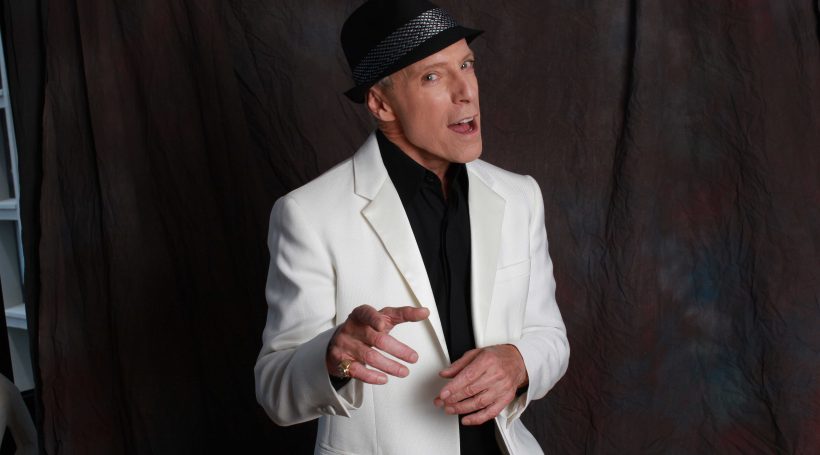
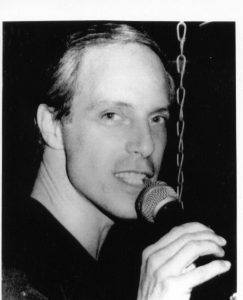 You won your first radio job in a craps game. What happened?
You won your first radio job in a craps game. What happened?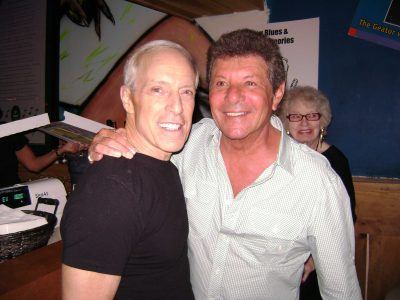 You have owned the nightclub Memories in Margate for 40 years. What is the audience there like today?
You have owned the nightclub Memories in Margate for 40 years. What is the audience there like today?